Have you ever heard the story of how big business interests invested massive amounts of money on a propaganda campaign designed to get more Americans to go to church? It wasn't about God, it was about Mammon - money. Business has understood for a long time that conflating capitalism with Christianity is good for profits... please let me tell you how unwitting Christians were turned into soldiers for capitalist profit...
Kevin Kruse tells the story in his book One Nation Under God. The year was 1940. It was the December convention of the National Association of Manufacturers (NAM) at New York’s posh Waldorf Astoria hotel that the Reverend James W. Fifield helped corporate America find Jesus.
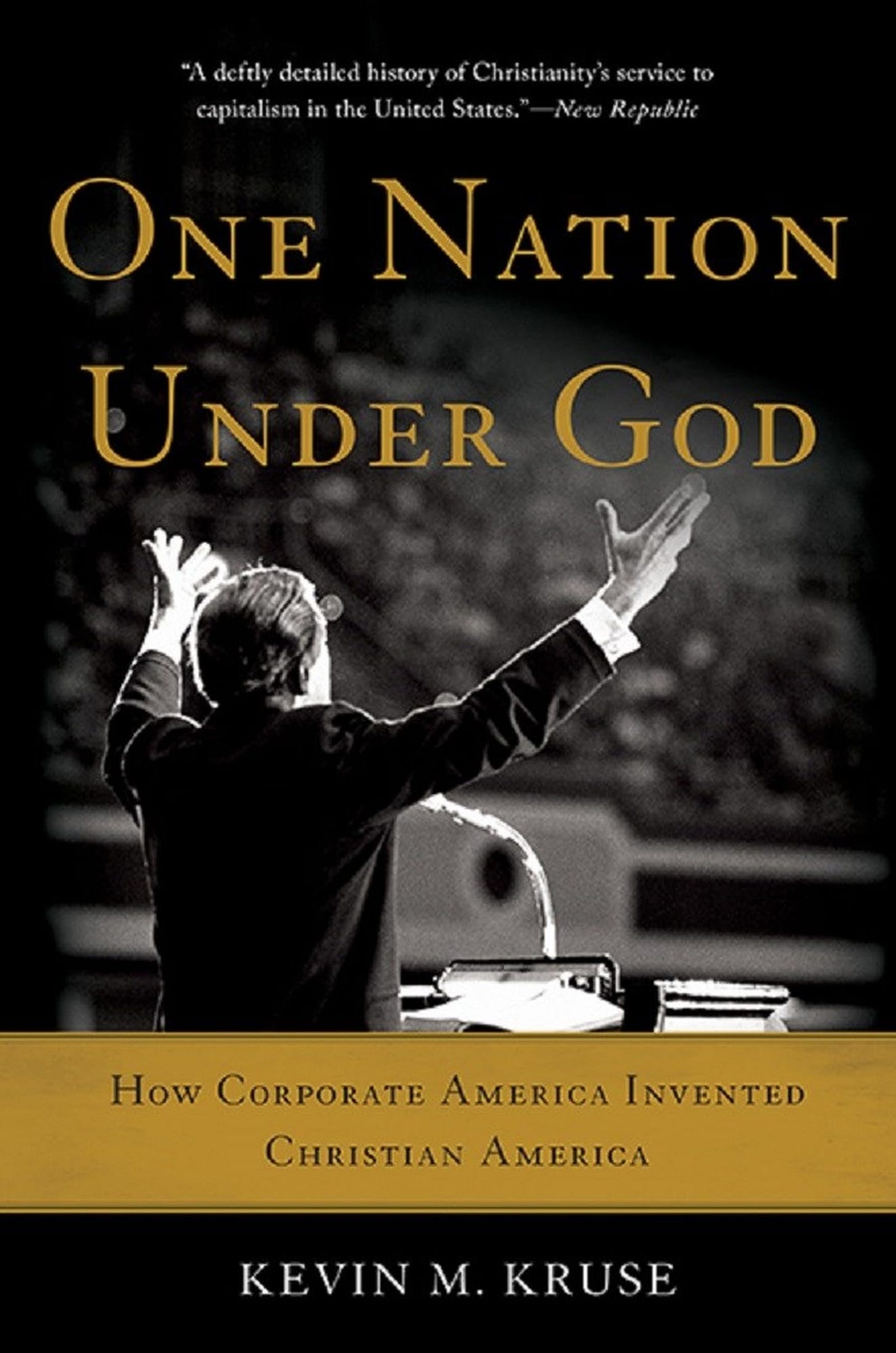
Let’s paint the scene a little first. 1940 was little more than a decade after the Wall Street Crash of 1929. The Great Depression wouldn’t be over for 5 more years. During that time period business had rightly been blamed for its role in creating this disaster. The popularity of the Free Market was at an all-time low. Franklin Roosevelt had been elected and reelected on the strength of his New Deal policies. Those policies were hugely popular with the public because they put government in charge of many of the decisions business used to make, which made the Great Depression a little less terrible on a human level. But those same New Deal policies were preventing business from making the record profits that had been commonplace during the 1920s. Rich businessmen needed to get back in the driver’s seat and kill those policies if they were ever going to have a chance at becoming disgustingly wealthy again (because being merely wealthy is an absolutely intolerable state for any rich person to be).
The tactics that businessmen had been using to turn the tide, however, weren’t working. When the NAM tried to tell folks during the Great Depression about the wonders of the free market and the values of free enterprise they were positively laughed out of the room. Business was spending millions in public relations (propaganda) on radio advertising, direct mail, public speakers, editorials and favorable news stories – nothing was working! The American public would not take these messages seriously because their own lived experiences proved the lie. Anyone could see right through what business was trying to do, so there was no need to pay any attention. They had been burned and they weren’t going to fall for such obvious claptrap so easily.
NAM president H.W. Prentiss knew it was time to try a new strategy. In 1939 he gave a speech to the US Chamber of Commerce saying that the next step should be to deploy religion into the public relations battle against the New Deal. He told his fellow business leaders “the only antidote is a revival of American patriotism and religious faith.” It was Prentiss who brought Reverend Fifield to the Waldorf Astoria in 1940. And Fifield answered the call.
In front of a crowd of sad boi industrialists, Rev. Fifield delivered a tent revivalist masterpiece. His righteous defense of God’s beloved free enterprise system was also a blistering, withering critique of Roosevelt’s "collectivist" New Deal. The audience was stunned. Expensive cigars burned to ash in fat fingers. Monocles plopped loudly into champaign flutes. These captains of industry hadn’t realized until this moment how much they had internalized the blame and shame for the nation’s post-crash downfall. Now, to hear from this superhero of a preacher man that they could make America great again, that they could make the ultimate Marvel team up with the King of the Jews to land a knockout blow on FDR’s big, dumb nose, was the deliverance they had all been waiting for. One journalist wrote that the deafening applause could be heard all the way in Hoboken.
The premise was so simple: Enlist the clergy to deliver God’s true message about the glory of America’s free market and the righteousness of the rich. The rubes in the church pews would never see it coming. There could be no suspicions about self-interest getting in the way. The key was just to have men of God make clear that the welfare state should never be used to apply Christ’s teachings about caring for the poor or one’s neighbor. Such use of the state was, simply put, a perversion of the highest order. Instead, the emphasis must be on the salvation of the individual soul. Writes Kruse, “If any political and economic system fit with the religious teachings of Christ, it would be rooted in a similarly individualistic ethos.” This was snidely referred to as “Christian libertarianism” by critics. Yet, did God not place the centrality of property rights there in the 10 Commandments? Reverend Fifield reasoned, the Commandments “thou shalt not steal” or the ones about not coveting your neighbor’s wife or possessions prove that the state’s demand for income taxes is basically theft and a violation of God’s will. Churches therefore had a solemn duty to defend the rights of rich people against the greedy hands of the state.
And so Reverend Fifield returned to his First Congregational Church in Los Angeles where he rubbed shoulders with millionaire parishioners. He quickly got their support for Spiritual Mobilization – an organization devoted to practicing what Fifield preached. By 1947 Spiritual Mobilization had more than 12,000 ministers on board – representing about 15 percent of all clergymen in the US. Big business couldn’t hand its money over fast enough. Soliciting donations from hundreds of corporate executives representing over 150 different companies, Spiritual Mobilization was also mobilizing tons of hard cash. Carmakers General Motors and Chrysler, Steel giants Republic and National Steel, Oil cartels Sun, Gulf, Standard Oil of New Jersey (Exxon), Firestone, International Harvester, and Colgate-Palmolive-Peet were all maxing out annual donations.
Amongst a wave of propaganda, Spiritual Mobilization used this tidal wave of money to publish a magazine called Faith and Freedom. Beating the Religious Right to the punch by decades, Faith and Freedom worked hard to convince its Christian readership that it was their duty to do God’s work at the ballot box. While pretending to be above grubby partisan politics the magazine still managed to tip the scales in favor of the Republican Party. A “political checklist for Christians,” for example, managed to shove readers strongly in the direction of a vote for the GOP. Just as God intended.
I'm going to stop right here and save the rest of the story for Part 2, where I'll discuss Billy Graham, President Eisenhower, and the huge impact this propaganda campaign had on American culture. You won't want to miss it.
Please give a like, comment, restack, and share to help others find me here on Substack.
Let’s make them pay.





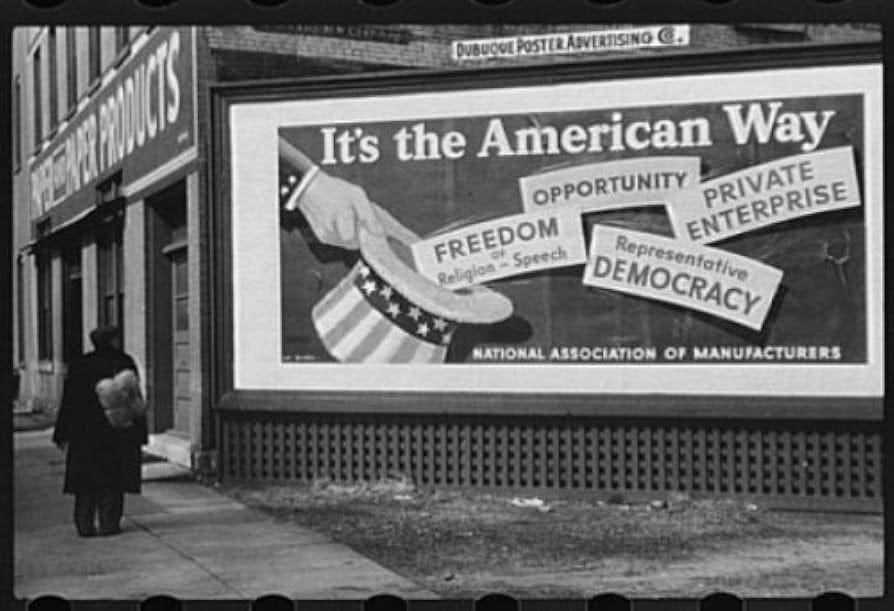
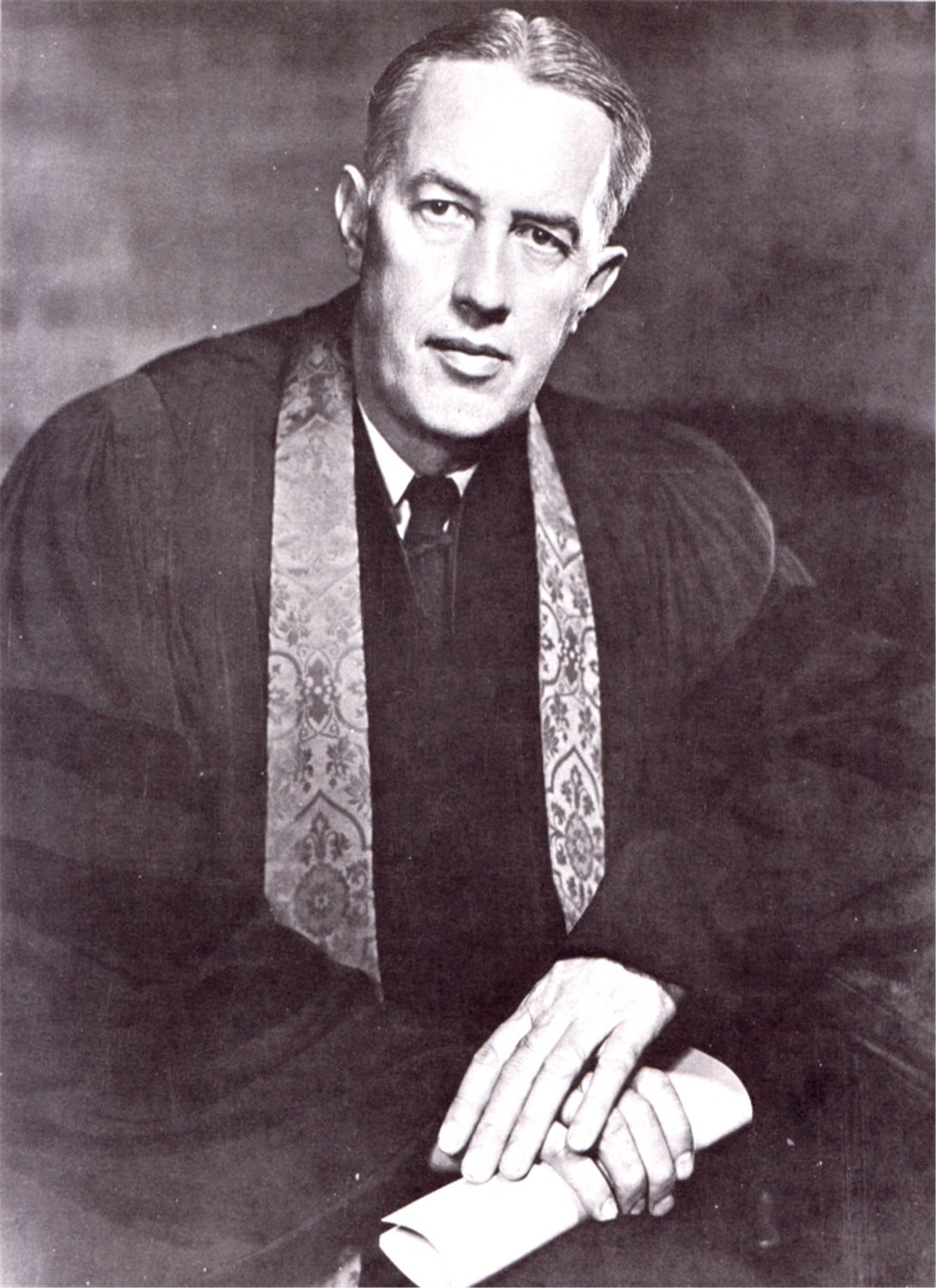
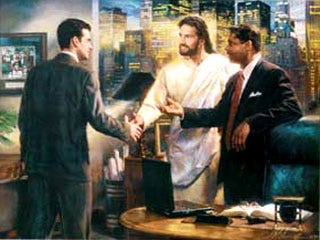







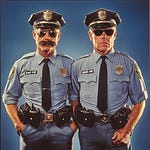
Share this post